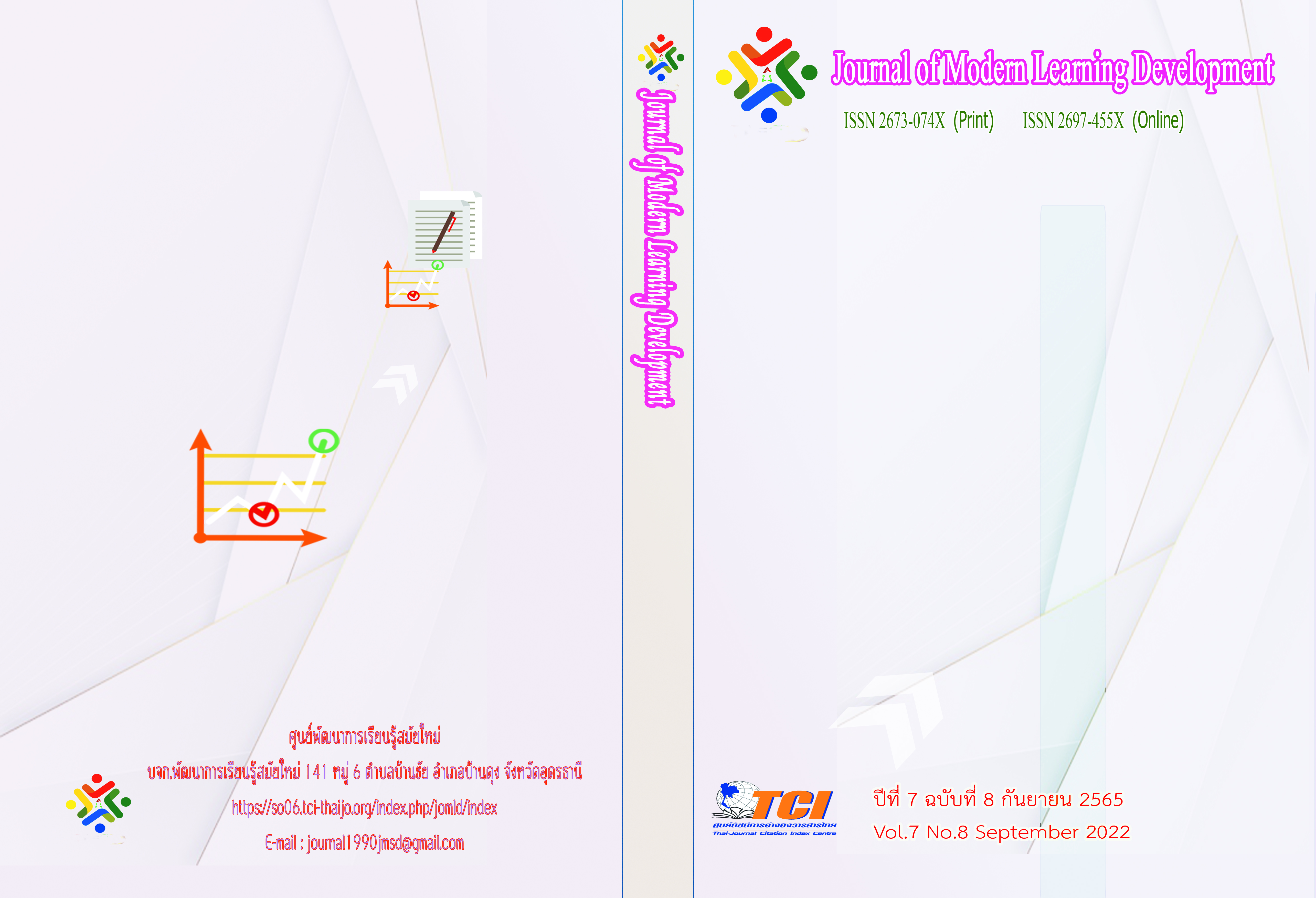Leadership and The Development of Modern Organization
Main Article Content
Abstract
The Leadership is an important role in managing leadership and creating changes to the organization. It is the beginning of the change before other people in the organization. Therefore, leaders or executives must lead the change. There is a management paradigm based on the principle of "4I's" (Four I's). By using knowledge and drawing out the potential of the follower. Create incentives to develop followers It creates a relationship between the two and creates ethical values. Including having psychology to control the hearts of people These are all important factors that lead the organization into a modern organization.
Modern organization that will survive and succeed in a highly competitive environment. Must be a strong organization and aim to be a learning organization. That is, an organization that personnel can continuously enhance their knowledge and ability and can create results according to their wishes. It is also a source of intellectual thinking. In order to create a learning organization that must start from creating people who are knowledgeable patterns and systematic thinking processes have team work creating a vision and setting goals together. And should adhere to the principle that Leadership is not a matter of those in an executive position. But is a condition that everyone in the organization must have
Article Details
References
Ampai Intharaprasert. (1999). Art of leadership. Bangkok: Suan Dusit Rajabhat Institute.
Bass, B.M., & Avolio, B.J. (1994).Improving organization effectiveness through transformation Leadership. Thousand Oaks: Sage.
DuBrin and Andrew, J. (1998). Leadership: Research Findings, Practice, and Skills. Houghton
Mifflin Company.
Gary A. Yukl. (1998). Leadership in Organizational (4th ed). Upper Saddle River. New Jersey: Prentice Hall.
Halpin, A.W. (1996). Theory and research in administration. New York: McMillan Company.
Hersey, P. and Blanchard, H. B. (1993). Management of Organizational Behavior: Utilizing Human Resources. (4th ed.). Englewood Cliffs NJ: Prentice-Hall International.
Jariya Somprasong (1999). Leadership. Bangkok: St. John's University.
Marrinez, T.F. (1993). A Transformational Leadership in Nursing. St.Louis: Mosby Year Book.
Peter M. Senge. (1990). The Fifth Discipline: The Art and Practice of the Learning Organization.
New York: Doubleday.
Podsakoff, P. M., MacKenzie, S. B., & Bommer, W. H. (1996). Transformational leader behaviors and substitutes for leadership as determinants of employee satisfaction, commitment, trust, and organizational citizenship behaviors. Journal of Management, 22, 259-298.
Pornnop pukkaphan. (2001). Leadership and motivation. Bangkok: Chamchuri Product.
Stogdill, R M. (1974). Handbook of leadership. New York: The Free.
Sakthai Surakitboworn (2002). Effectiveness of leadership among education administrators and education providers: An important feature of the executive in the globalization era. Academic Journal, 5 (1), 9-10.
Sanai Jui To. (2008). Modern organization. Nonthaburi: Sukhothai Thammathirat Open University.
Thon Soontrayut. (2000). Principles and theories in educational administration. Bangkok: Netikul Publication.
Tippawan Losuwanarat (2006). Modern Organization Theory (6th edition). Bangkok: Rattanatri Publishing House.


